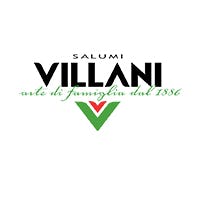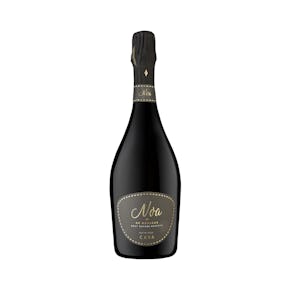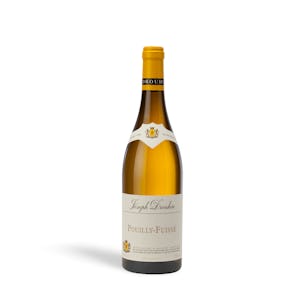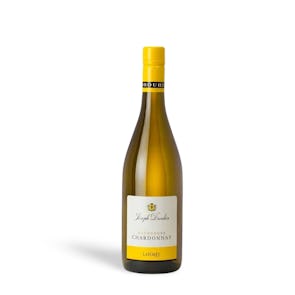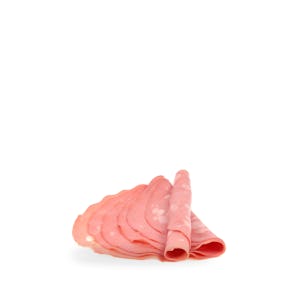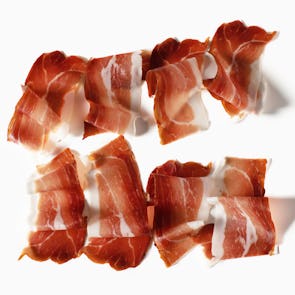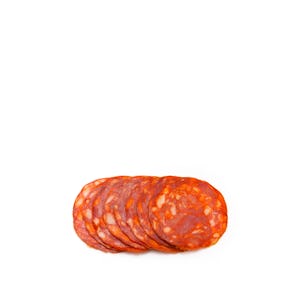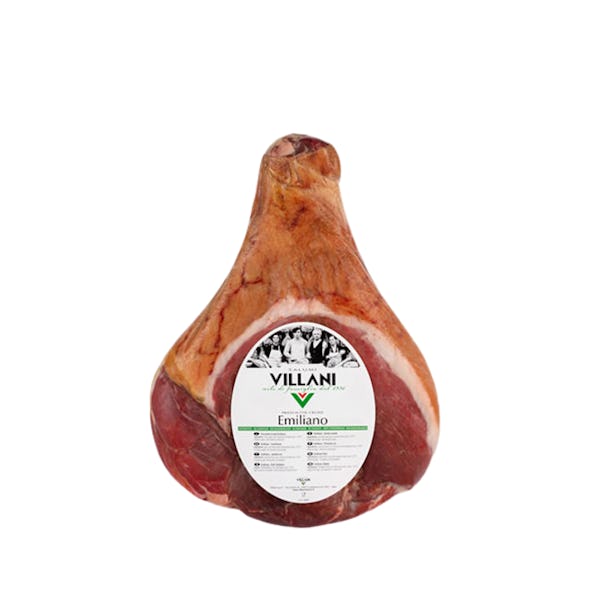
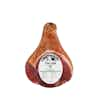
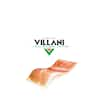
TASTING NOTES FROM THE CURATOR
Tradition is an important foundation in Villani Italian meats, and it’s what makes this prosciutto one of the finest around. Meat, salt, skilled manual work, and the changing of the seasons are the only components needed to make the Villani Prosciutto Emiliano Block. It’s cured for 10 months in the Villani factory in Pastorello, Langhirano, Parma.
This IGP dry-cured meat shows off its beautiful deep pink color, and it’s delicately sweet and salty, and streaked with beautiful layers of flavorful fat.
PREPARATION AND PAIRINGS
Prosciutto is a very incredible meat, and it’s already so wonderful eaten on its own, or as part of your charcuterie. A nice glass of Pinot Noir—like this one by Villard, or this Lionel Osmin Sauvignon Blanc would make the meat’s flavor really shine.
It also lends a beautifully savory note to a watermelon and feta salad. Drizzle a honey vinaigrette on top to pull everything together. You could also layer slices of Villani Prosciutto Emiliano Block on your homemade pizzas. Try one with burrata, parmesan, and arugula.
THE EQUILIBRIUM OF TRADITION AND MODERNITY
Founded in 1886 in Castelnuovo Rangone, near Modena, Villani was properly established when Ernesta and Costante Villani bought a building in the town center. They were already marketing dry-cured ham, and with this venture, they expanded to producing salami, coppa, bacon, mortadella, and cooked ham.
In the 1930s, the company was already well into exporting. And Giuseppe, their son (one of eleven) had gotten an idea when he returned from the States. Drying hangers would revolutionize dry-cured pork production processes.
The idea was quickly adopted by more and more charcuterie producers, and these mobile hangers are still used today as basis for the modern drying process. But Giuseppe’s passion did not stop there. He went all over Italy, searching for new regional recipes and methods, gathering experience along the way. Eventually, Villani expanded their production to more regional specialties, sold both worldwide and in the areas where the recipes originated, which served as great recognition and appreciation for the quality of their meats.
Villani now was five processing sites, catered to making different meats according to DOP and IGP labels. The meats are still made with traditional means—manual skills fundamental to the quality, but they have also adapted to modern systems and research. The family’s coexisting spirits of tradition and modernity allowed the company to bloom into what it is now.
Storage Instructions
Vacuum-sealed packs of hand-carved cured meats can last up to five months in the refrigerator (never the freezer). Once the pack is opened, they’re best enjoyed within the day.

